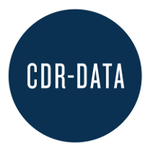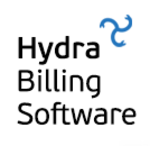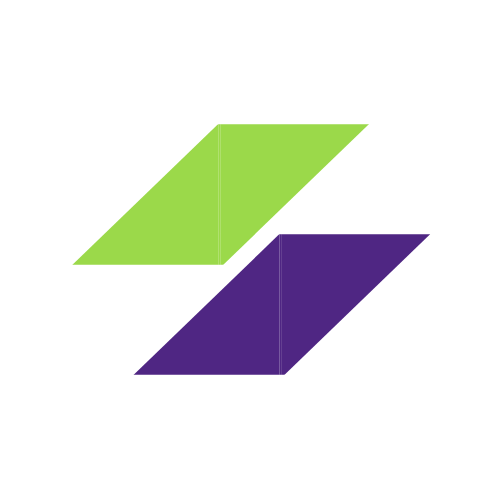Description

eCDR

Unicorn Billing
Comprehensive Overview: eCDR vs Unicorn Billing
Comprehensive Overview of eCDR and Unicorn Billing
a) Primary Functions and Target Markets
eCDR (Electronic Call Detail Record):
-
Primary Functions:
- eCDR solutions are primarily designed to manage and analyze call detail records. These systems collect raw data from telecommunication exchanges and convert them into meaningful reports that help in billing, traffic analysis, and network management.
- They often include features for fraud detection, real-time monitoring, and data storage/management.
- eCDR systems may also support integration with various telecommunications network components and external billing systems.
-
Target Markets:
- Telecommunication companies, including mobile and fixed-line operators.
- Internet service providers (ISPs) and VoIP service providers.
- Large enterprises with significant telecommunication needs, such as financial institutions or multinational corporations.
Unicorn Billing:
-
Primary Functions:
- Unicorn Billing systems are comprehensive billing solutions that manage the entire billing lifecycle. They handle invoicing, payments, revenue recognition, and customer account management.
- The software provides modular billing solutions that support prepaid, postpaid, and converged billing scenarios.
- It often includes customer relationship management (CRM) features, analytics, and customizable tariff plans.
-
Target Markets:
- Telecommunication operators of various sizes.
- Utility companies and other service-based industries requiring complex billing solutions.
- Enterprises needing a robust billing management system to handle diverse billing scenarios.
b) Comparison in Terms of Overall Market Share and User Base
-
Market Share:
- Both eCDR and Unicorn Billing operate within a niche sector of the telecommunications industry. eCDR systems tend to have a more specialized focus on telecommunication records and are widely used among telecom operators and large ISPs.
- Unicorn Billing, while also popular in telecommunications, has broader applications and may penetrate additional markets such as utilities and subscription-based services, potentially giving it a wider user base.
-
User Base:
- eCDR typically has a concentrated user base composed of technical departments within telecommunication firms focused on analytics, fraud prevention, and network optimization.
- Unicorn Billing serves a broader user base, including financial departments, customer service teams, and executive management within telecoms and other industries that require detailed billing and CRM integration.
c) Key Differentiating Factors
-
Functionality Focus:
- eCDR: Primarily focused on call data analysis and network monitoring. It provides deep insights into call patterns and usage metrics essential for telecom operations and fraud prevention.
- Unicorn Billing: Focuses on comprehensive billing management, including CRM and financial operations. Its versatility allows it to manage complex billing scenarios across various industries.
-
Flexibility and Integration:
- eCDR: Highly specialized, designed for integration with telecom hardware and software, providing direct access to CDRs for real-time analysis.
- Unicorn Billing: Offers extensive integration capabilities with financial systems, CRM systems, and other enterprise solutions, providing a holistic view of customer accounts and billing.
-
User Experience:
- eCDR: Geared towards technical users who need in-depth analysis and data manipulation.
- Unicorn Billing: Designed with end-users in mind, often providing a more user-friendly interface for non-technical users, including customer service representatives and billing analysts.
In summary, while both eCDR and Unicorn Billing serve critical roles within telecommunications, their core functions and user experiences are tailored differently to meet the specific needs of their respective markets. eCDR provides detailed telecommunication analytics and monitoring, while Unicorn Billing offers an extensive, user-friendly billing system that extends beyond telecom to other industries requiring intricate billing solutions.
Contact Info

Year founded :
Not Available
Not Available
Not Available
France
http://www.linkedin.com/company/ecdr

Year founded :
Not Available
Not Available
Not Available
Not Available
Not Available
Feature Similarity Breakdown: eCDR, Unicorn Billing
To provide a feature similarity breakdown for eCDR (Electronic Call Detail Records) and Unicorn Billing, we should look into several aspects including core features, user interfaces, and unique features. Here’s a generalized analysis based on typical industry offerings for such software solutions:
a) Core Features in Common
eCDR and Unicorn Billing are likely to share several core features typical of telecom billing and management solutions:
-
Call Detail Records (CDR) Management: Both systems must have a robust mechanism for handling CDRs, including collection, storage, and processing.
-
Billing and Invoicing: These systems typically offer billing functionalities, including the generation of invoices, management of billing cycles, and application of tariffs and discounts.
-
Rate Management: Both products should support the setup and maintenance of rates for different services and destinations.
-
Reporting and Analytics: Comprehensive reporting functionalities that allow users to generate various types of reports based on usage, financial performance, and customer behavior.
-
Customer Management: This includes modules for managing customer data, contracts, and communication histories.
-
Integration Capabilities: Ability to integrate with other systems like CRM, ERP, and other operational tools.
b) User Interfaces Comparison
The user interface of telecom billing and management systems like eCDR and Unicorn Billing can vary significantly. Here’s a conceptual comparison:
-
eCDR: Typically, might offer a utilitarian, function-driven interface focused on efficiency. The UI might be navigable with structured menus and dashboards tailored for telecom operators emphasizing data analytics and CDR processing.
-
Unicorn Billing: A more modern approach might be expected, with a user-friendly interface featuring intuitive navigation, accessible dashboards, and possibly a higher degree of customization options. Unicorn Billing might invest more in aesthetic design and user experience to cater to a broader range of users, including non-technical staff.
c) Unique Features
While both products offer overlapping features, each might have unique aspects:
- eCDR Unique Features:
- Advanced CDR Processing: Capabilities for handling massive CDR volumes with advanced filtering, error correction, and data enrichment.
- Security and Compliance: Enhanced security measures, possibly including compliance checks for regulatory standards specific to telecom data handling.
- Unicorn Billing Unique Features:
- Automated Workflows: More advanced automation features for billing processes, customer communications, and reporting.
- AI-Driven Analytics: Implementation of AI tools for predicting trends, automating anomaly detection, and providing actionable insights.
- User Personalization: Greater emphasis on customizable dashboards and reports tailored to individual user needs.
Conclusion
While eCDR and Unicorn Billing share core functionalities essential for telecom billing solutions, they might distinguish themselves through user interface design and unique features. eCDR could focus more on technical robustness and compliance, while Unicorn Billing might prioritize user experience and modularity for business intelligence. For specific differentiation, direct product documentation or a trial would provide definitive insights.
Features

User-Friendly Interface
Data Management
Integration Capabilities
Customer Support

Reporting and Analytics
Subscription Management
Payment Processing
Best Fit Use Cases: eCDR, Unicorn Billing
eCDR (Electronic Call Detail Records)
a) Best Fit Use Cases for eCDR:
-
Telecommunications Companies: eCDR is primarily designed for telecom operators, ISPs, and VoIP providers. It enables them to efficiently manage, analyze, and bill their customers based on call details.
-
Businesses with High Call Volumes: Any business that handles a large volume of calls and requires detailed record-keeping can benefit from eCDR. Examples include call centers, customer support services, and outbound sales operations.
-
Organizations Requiring Detailed Records: Companies that need to maintain extensive call logs for compliance, quality assurance, or performance analysis would find eCDR invaluable.
-
Telecom Resellers: Operators who resell communication services need eCDR to accurately track and bill usage in real-time.
d) Catering to Different Industry Verticals or Company Sizes:
-
Industry Verticals: eCDR is particularly suited to telecommunications, IT service providers, and any sector reliant on telecommunication services.
-
Company Sizes: eCDR can be scaled to accommodate both small-scale operators and large, multinational telecom companies by providing flexible integration options and scalable architecture.
Unicorn Billing
b) Best Fit Use Cases for Unicorn Billing:
-
Comprehensive Billing Requirements: Unicorn Billing is ideal for companies that need a comprehensive, end-to-end billing system capable of handling a mix of products and services, often beyond just telecom services.
-
Subscription-Based Businesses: Companies operating on a subscription model, such as SaaS providers or media streaming services, benefit from Unicorn Billing's ability to manage recurring billing cycles efficiently.
-
Multi-Service Businesses: Unicorn Billing is advantageous for businesses offering diverse services and needing a billing solution that can unify different billing processes under one platform.
-
Complex Rate Management: Companies that require intricate pricing models, discounts, promotions, or bundling options will find Unicorn Billing's features advantageous.
d) Catering to Different Industry Verticals or Company Sizes:
-
Industry Verticals: Unicorn Billing is versatile and can apply to various industries, including telecommunications, utilities, IT, cloud services, and digital media.
-
Company Sizes: It is scalable, accommodating startups to large enterprises, especially those experiencing rapid growth or diversification and requiring a robust billing infrastructure.
In summary, eCDR is best suited for businesses with a primary focus on telecom services, providing detailed call data for billing and analysis. In contrast, Unicorn Billing is more versatile, designed for companies requiring complex billing solutions across various service types and industry verticals. Both can scale to fit the needs of small to large organizations, with eCDR focusing more narrowly on telecom-specific requirements, while Unicorn Billing offers broader applicability.
Pricing

Pricing Not Available

Pricing Not Available
Metrics History
Metrics History
Comparing undefined across companies
Conclusion & Final Verdict: eCDR vs Unicorn Billing
To provide a conclusion and final verdict on eCDR and Unicorn Billing, we need to evaluate and compare both products based on their features, value for money, pros and cons, and specific use-case recommendations.
Conclusion and Final Verdict
a) Best Overall Value:
- Unicorn Billing offers the best overall value for organizations seeking a comprehensive billing solution with advanced customization options and integration capabilities. Its robust feature set and flexibility may justify the cost for larger enterprises or those with specific billing needs.
- eCDR, on the other hand, might present a better value for smaller businesses or startups looking for a straightforward and cost-effective billing solution without needing extensive customization or advanced features.
b) Pros and Cons:
-
eCDR:
- Pros:
- Cost-effective, especially for small to medium-sized businesses.
- User-friendly interface with a simpler learning curve.
- Basic features are sufficient for straightforward billing needs.
- Quick implementation and setup time.
- Cons:
- Limited customization options compared to more robust solutions.
- May not scale effectively for very large enterprises or complex billing requirements.
- Potentially fewer integration capabilities with other enterprise systems.
- Pros:
-
Unicorn Billing:
- Pros:
- Comprehensive feature set suitable for large enterprises.
- Highly customizable, catering to diverse and complex billing scenarios.
- Strong integration capabilities with various enterprise resource planning (ERP) and customer relationship management (CRM) systems.
- Better scalability, able to support growing businesses with expanding billing needs.
- Cons:
- Higher cost, which may not be justifiable for smaller businesses.
- Longer implementation period and potentially steeper learning curve.
- Additional features may be unnecessary for businesses with simpler billing needs.
- Pros:
c) Recommendations:
-
For Small to Medium Enterprises (SMEs): eCDR is recommended due to its affordability and ease of use. Businesses that require basic billing functionalities without the need for extensive customization will find eCDR to be a pragmatic choice.
-
For Large Enterprises or Businesses with Complex Needs: Unicorn Billing is recommended. Its extended capabilities, customization, and integration features make it suitable for larger organizations that require a more tailored approach to billing management.
-
Specific Decision-Making Factors:
- Budget Constraints: eCDR might be preferred due to lower costs.
- Necessity for Customization and Integration: Unicorn Billing should be considered if customization and system integration are critical.
- Implementation Timeframe: Organizations needing quick deployment might favor eCDR.
- Long-term Scalability: Unicorn Billing will likely offer better long-term growth support due to its scalable features.
In summary, the choice between eCDR and Unicorn Billing depends largely on the size of the organization, the complexity of billing needs, and the budget availability. Users should assess their specific requirements against these factors to make an informed decision.
Add to compare
Add similar companies



